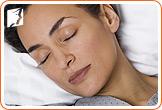
Menopause is often accompanied by a range of symptoms, the most common of which include hot flashes, night sweats, vaginal dryness, and mood swings. The main cause of symptoms is hormonal imbalance. Hormones are chemical messengers which are transported in the bloodstream and control many of the changes that take place in the body. However, while hormones are the fundamental cause of menopause symptoms, there are various triggers that can set off menopause symptoms on a day to day basis.
Cooking
Cooking is a daily activity that could be triggering your hot flashes. Hot flashes are sensations of intense heat that occur suddenly and without warning. Being in a hot kitchen; preparing, serving, and eating steaming food can trigger a hot flash. Cook with the window open, drink plenty of cool water, and have a hand-fan close an uncomfortable hot flash episode.
Synthetic fabric

Synthetic sheets are an aggravating factor when you are experiencing menopausal night sweats. Night sweats are the nocturnal version of hot flashes, characterized a sudden wave of heat that occurs while you are sleeping, and can wake you up in an uncomfortable sweat. Synthetic sheets do not let your skin breathe while you are sleeping, making your body more prone to night sweats, and making it more uncomfortable when they do occur.
Tight clothes

One of the more uncomfortable symptoms of menopause is vaginal dryness. Vaginal dryness is an irritation around the vaginal area, caused by low hormone levels in the body causing the vagina to become drier and less elastic. Tight clothing around the infected area, in particular skinny jeans, is an external trigger of vaginal dryness. Avoid tight clothing, and instead wear loose trousers or skirts for greater comfort.
Small Problems

Mood swings are a symptom of menopause caused by fluctuating hormone levels. Mood swings are defined as irrational emotional reactions to daily situations such as an outburst caused by being caught in a line at the grocery store, to someone else eating the last cookie. It is difficult to avoid these triggers, as any event could trigger a mood swing, but it is important to always be prepared, and to know how to handle them when one does hit.
Recommendations
There are a number of ways in which symptoms of menopause can be combated or prevented. Many triggers can be avoided by simple lifestyle changes. However, there are also a number of methods to treat menopausal symptoms on a hormonal level. These treatments include alternative medicines, such as herbal supplements, and hormone replacement therapy (HRT).
Sources
- BMJ Group. "Menopause: What is it?" Patient Leaflet. 2007.
- Hopkins, Virginia. Lee, John R. M.D. What Your Doctor May Not Tell You About Menopause. New York: Warner Books Inc., 1996.
- Love, Susan M.D. Menopause and Hormone Book. New York: Three Rivers Press, 2003.
- Martin, Raquel. The Estrogen Alternative. Rochester, VT: Healing Arts Press, 2000.



